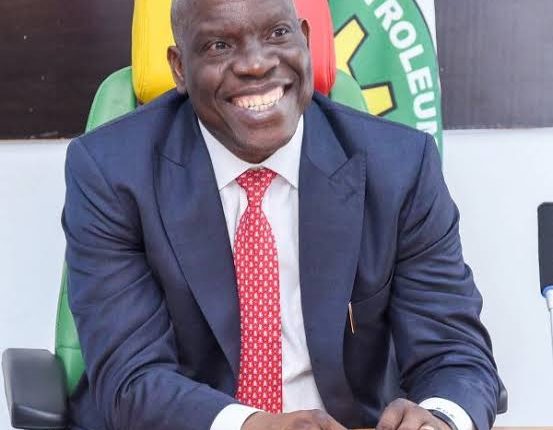According to Engr. Gbenga Komolafe, the Chief Executive of the Nigerian Upstream Petroleum Regulatory Commission (NUPRC), President Bola Tinubu’s reform plan is making Nigeria one of the most alluring countries in the world for upstream oil and gas investments.
Speaking at the Africa Oil Week in Accra, Ghana, Komolafe claimed that the strong policy changes supported by presidential executive orders and based on the Petroleum Industry Act (PIA) 2021 have boosted investor confidence and opened the door to billions of dollars in new commitments.
With the approval of 28 new Field Development Plans in 2025 alone, Komolafe declared, “1.4 billion barrels of oil and 5.4 TCF of gas have been unlocked, adding an estimated 591,000 barrels of oil per day and 2.1 BSCFD of gas.”
“With $18.2 billion in CAPEX commitments, these FDPs highlight Nigeria’s evolution into one of the world’s most vibrant and alluring upstream investment frontiers.”
He claims that the flurry of pledges supports Nigeria’s goal of increasing its crude oil production capacity to more over three million barrels per day while guaranteeing significant contributions to regional development, national revenue, and energy security.
The head of the NUPRC cited historic initiatives like the $500 million Ubeta Gas Project and the $5 billion Bonga North deep offshore development as proof of continuing long-term commitments by international operators.
On significant projects like HI NAG Development, Ima Gas, Owowo Deep Offshore, and Preowei Fields, he stated that further final investment decisions (FIDs) are anticipated.
Komolafe revealed that the Federal Government has also authorized five significant acquisition agreements totaling more than $5 billion since Tinubu took office.
According to him, these deals have given aspirational local companies new chances to increase their presence in the upstream market.
According to Komolafe, the Petroleum Industry Act has brought forth “a new era of governance, fiscal reform, and institutional realignment,” which has helped the Commission become a more progressive regulator.
“The NUPRC has issued 24 transformative regulations in almost four years, 19 of which have been gazetted to operationalize important PIA provisions,” he said.
“To address bottlenecks, remove entry barriers, and guarantee transparent licensing rounds, we have unveiled a comprehensive Regulatory Action Plan.”
He pointed out that the reforms are already showing noticeable effects. As of September 2025, there are 43 rigs, up from just eight in 2021, which is a major sign of upstream activity.
Additionally, Komolafe cited recent concession wins and bid rounds as proof of the new regime’s openness and competition.
According to him, the 2022 Mini-Bid Round, the 2024 Licensing Round, and the 57 Petroleum Prospecting Licences granted in 2022 all drew “exceptional investor participation” because of their more accessible and transparent terms.
He clarified that in order to enable more operators to compete, the Commission purposefully streamlined signature bonus procedures and removed entrance restrictions.
He continued, “The outcome was that 27 of the 31 blocks offered in 2024 were successfully taken up.”
The head of the NUPRC emphasized that these developments are not only short-term gains but rather are a component of a larger plan to position Nigeria in the forefront of Africa’s energy future.
As “the cornerstone of economic growth, national resilience, and shared prosperity across the continent,” he emphasized the importance of energy security.
“We are not only welcoming investment, but we are creating a world-class upstream oil and gas environment that incentivizes aspiration, creativity, and accountability, all supported by the Petroleum Industry Act as our cornerstone, as well as by audacious presidential executive orders and revolutionary regulatory initiatives,” Komolafe stated.
According to Komolafe, Nigeria’s strategy strikes a compromise between sustainability and economic necessity as the continent struggles with energy transition discussions.
He maintained that, with proper management, the nation’s enormous hydrocarbon resource will support industrialization and the fight against poverty while assisting in the slow transition to renewable energy.
Nigeria’s appeal, according to industry watchers at Africa Oil Week, was among the most convincing. They noted that the combination of political will, regulatory clarity, and legal certainty is changing the country’s image as a hub for oil and gas investment.

